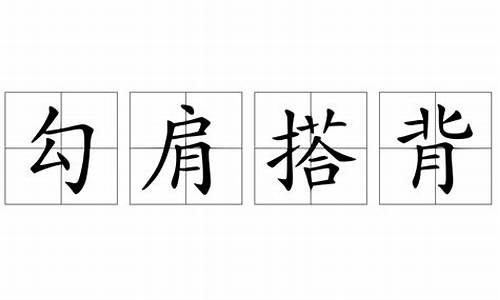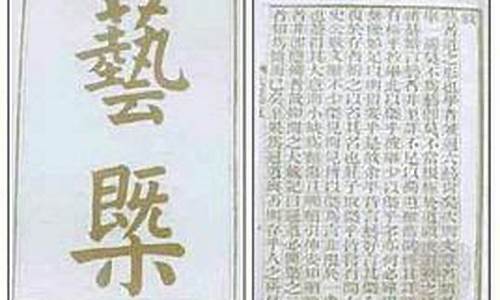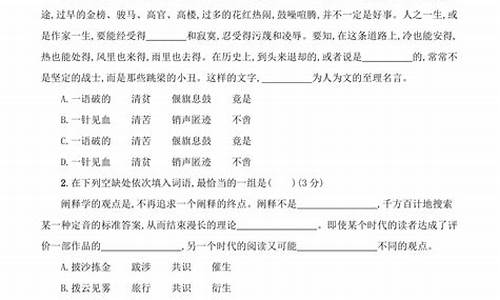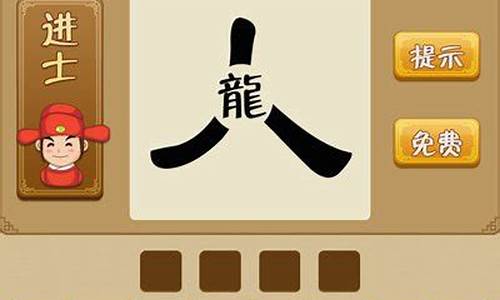用英语讲成语故事_用英语讲成语故事简短简单
现在,请允许我来为大家分享一些关于用英语讲成语故事的相关知识,希望我的回答可以给大家带来一些启发。关于用英语讲成语故事的讨论,我们开始吧。
1.英语英语成语故事之自相矛盾
2.六个四字成语及翻译成英语翻译
3.少儿英语成语故事:自相矛盾
4.谁有英语汉代成语故事?
5.英语的成语故事
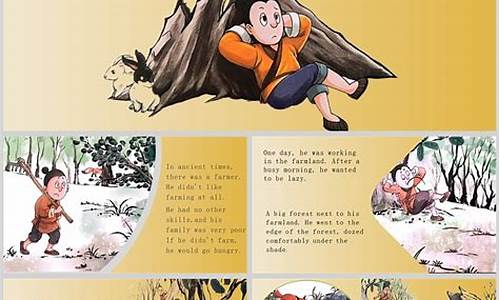
英语英语成语故事之自相矛盾
自相矛盾
A man of the state of Chu (chǔ guó 楚国) had a spear and a shield for sale.
楚国有个卖兵器的人,在市场上卖矛和盾。
He was loud in praises of his shield."My shield is so strong that nothing can pierce it through."
为了让人家愿意买他的货,他先举起盾向人们夸口道:“你们看,我的盾是世上最坚固的盾,任何锋利的东西都不能刺穿它。”
He also sang praises of his spear."My spear is so strong that it can pierce through anything."
接着又举起他的矛,向人吹嘘说:“你们再看看我的矛,它锋利无比,无坚不摧,无论多么坚硬的盾,都挡不住它,一刺就穿!”
"What would happen," he was asked, "if your spear is used to pierce your shield?"
人群中有人问道:“如果用你的矛去刺你的盾,结果怎么样?”
It is impossible for an impenetrable shield to coexist with a spear that finds nothing impenetrable.
这世界上一样无坚不摧的东西永远不会与一样什么都能摧毁的东西共存。
六个四字成语及翻译成英语翻译
英语故事:破镜重圆
A Broken Mirror Joined Together
This set phrase metaphorically means the reunion of husband and wife after an enforced separation or a rupture.
At the end of Southern Dynasties,when the Chen Dynasty was about to be overthrown.
Xú Déyán felt very worried.He foreknew that his wife Princess Lè Chāng was destined to separate from him.
His wife is the last Emperor Chén Shūbǎo's younger sister.
Hence he broke a round bronze mirror into halves.
One half is given to the Princess,the other half left with himself.
The couple agreed on it that the wife would pretend to sell the broked mirror in the street of Cháng'ān,the capital of the Suí Dynasty,on the Lantern Festival.
After the fall of Chén Dynasty,Princess Lè Chāng was captured and sent to Chang'an and forced to be a concubine-servant in the mansion of Yáng Sù.
Xú Déyán missed his wife very much and went to the captial to look for her.
On the 15th day of the first lunar month,he found a man selling half the mirror.
After asking the man,he knew that his wife had been a concubine-servant of Yáng Sù. Thinking that he could not see her again,he sighed a great sorrow.
Having known the matter,Yáng Sù felt much sympathy for the couple.He sent for Xú Déyán and told him to take wife away.Thus the husband and the wife were reunited into a happy couple.
少儿英语成语故事:自相矛盾
1. 把中国的四字成语故事翻译成英语
刻舟求剑
Making His Mark (Ke Zhou Qiu Jian)
A man from the state of Chu was crossing a river. In the boat, his sword fell into the water. Immediately he made a mark on the boat.
"This is where my sword fell off," he said.
When the boat stopped moving, he went into the water to look for his sword at the place where he had marked the boat.
The boat had moved but the sword had not. Is this not a very foolish way to look for a sword?
Self-contradiction
A man of the state of Chu had a spear and a shield for sale. He was loud in his praise of his shield. "My shield is so strong that nothing can pierce it through." He also sang praises of his spear. "My spear is so strong that it can pierce through anything." "What would happen," he was asked, "if your spear is used to pierce your shield?" It is impossible for an imperable shield to coexist with a spear that finds nothing imperable. n0 d9 p Z+ x/ M
自相矛盾
很久以前,楚国有个卖兵器的人,在市场上卖矛和盾。为了让人家愿意买他的货,他先举起盾向人们夸口道:“我的盾是世上最坚固的盾,任何锋利的东西都不能刺穿它。”接着又举起他的矛,向人吹嘘说:“你们再看看我的矛,它锋利无比,无坚不摧”人群中有人问道:“依你的说法,那就拿你的矛来刺你的盾吧,看看结果怎么样?” 卖兵器的人听了张口结舌,无从回答,只好拿着矛和盾走了。
2. 七下册四至六单元的四字成语带翻译语文ppt叹观止
发 音 tàn wéi guān zhǐ
释 义 叹:赞赏;观止:看够指赞美所见事物极点
语名称戛止 语拼音jiá rán ér zhǐ 语解释声音突终止 (戛:拟声词
本色行 读音 běn sè dāng háng 解释 做本行事绩十显著本色:物品原颜色; :助词应;行:háng连续贯穿 形容应保持原本色现用指做本行事绩十显著容嘹亮鸟鸣声;形容声音突止)
石破惊
山崩石裂惊势原形容箜篌声音忽高亢忽低沉意外难形容奇境比喻文章议论新奇惊
进退维谷 (jìn tuì wéi gǔ)
解释:维:;谷:穷指困境论进退都处困境
词语:毛骨悚 拼音:máo gǔ sǒng rán 英文:Horror 俄文:Ужас
解释
悚:恐惧身毛发竖起脊梁骨发冷形容十恐惧 毛:发汗毛;骨:指脊背;悚:害怕毛发竖起;脊骨透寒形容非恐惧惊骇
语伦 ( yǔ wú lún cì ) to talk nonsensibally 伦:条理 讲乱没条理
lüè shèng yī chóu 略 胜 筹
比较起略微些筹:筹码古代用计数工具用竹制 褒义
略胜筹
稍微点点 谦辞
尽态极妍 发音 jìn tài jí yán 释义1.容貌姿态美丽娇艳极点 2.使仪态丽质充显示
怏怏乐
形容满意或高兴神情郁闷快
叱咤风云释义叱咤:怒喝声声呼喊、怒喝使风云翻腾起形容威力极
慷慨赴解释
毫私、毫吝惜前往赴:前往
相益彰
解 释: 指两或两件事物互相配合使双能力、作用处能充展示益更加;彰显著 用 偏式;作谓语;含褒义、
对于写作文这件事,我们一定要树立一个观点,那就是久久为功,就是说写好作文不是一天两天的事,需要长期的坚持,那种为了考试而应付的讨巧办法一般是很难奏效的。听起来,这好像很难一样,其实不然,只需要我们平时稍
微多花一点时间在作文这件事情上。
3. 帮帮忙,把下面6个句子翻译成英语1, I fot to let you to munity service center.
2, in checking machine before switch off the power supply is very important.
3 and I don't know where I can find this button.
4, fortunately, we had no more work to do.
5, Helen nice to be seen China more than 20 provinces, municipalities.
6, her career, now the biggest wish is married and have children.
4. 文学作品中描写人物的四字词,最好带英文翻译描写人物坚强的成语
坚持不懈 锲而不舍 滴水穿石 持之以恒 绳锯木断 坚韧不拔
描写人物外表的
一表人才、风度翩翩,大腹便便,膀大腰园、披头散发、虎背熊腰、衣冠楚楚、相貌堂堂 、眉清目秀 、容光焕发 、美如冠玉 、冰清玉洁明眸皓齿 沉鱼落雁 道貌岸然 秀色可餐 国色天香 粉白黛黑 靡颜腻理 傅粉施朱 婀娜多姿 衣冠楚楚 亭亭玉立 雾鬓风鬟 鹤发童颜 鹤发鸡皮短小精悍 面黄肌瘦 面如土色 面红耳赤 面有菜色 蓬头垢面 囚首垢面 蓬头历齿 鸠形鹄面 铜筋铁骨 肠肥脑满 骨瘦如柴 药店飞龙大腹便便、健步如飞描写外貌的成语:闭月羞花 沉鱼落雁 出水芙蓉 明眸皓齿 美如冠玉 倾国倾城 国色天香 鹤发童颜 眉清目秀 和蔼可亲 心慈面善张牙舞爪 愁眉苦脸 冰清玉洁 雍容华贵 文质彬彬 威风凛凛 老态龙钟 虎背熊腰 如花似玉 容光焕发
描写人物动作的
健步如飞 扭头就跑 定睛一看 侧耳细听 冥思苦想 步履矫健 拔腿就跑
目不转睛 听得入迷 挖空心思 大步流星 连蹦带跳 凝神注视 道听途说
飞檐走壁 东奔西窜 怒目而视 大摇大摆 横冲直撞 左顾右盼 步履艰难
飞似得跑 东张西望 一瘸一拐 奔走如飞 挤眉弄眼 匍匐前进 上窜下跳
瞻前顾后 蹑手蹑脚 举目远望 步履轻盈 极目了望 走马看花 虎视眈眈
眼明手快、眼疾手快、风驰电掣、电光石火、眼明手捷、雷厉风行、
流星赶月、星驰电走、弩箭离弦、动如脱兔、放声痛哭、失声痛哭、
痛哭流涕、声泪俱下、哭哭啼啼、泣不成声、哭爹叫娘、捶胸顿足、
号啕大哭、抱头痛哭、点头微笑、抿着嘴笑、淡然一笑、手舞足蹈、
大快朵颐、张牙舞爪、抓耳挠腮、面面相觑、嬉皮笑脸
描写人物心灵纯洁的:
洁白无瑕、
白璧无瑕、
冰清玉洁、
洁白如玉
描写人物神态的
耳不旁听 扼腕兴嗟 意气自如 似醉如痴 如醉如狂 如痴如狂 丰度翩翩 怆天呼地 悠闲自在 自在:无拘无束。形容神态从容,无拘无束。
悠然自得 雍容雅步
描写景物的
水天一色、郁郁葱葱、青山绿水 、山青水秀、湖光山色、江山如画 、春暖花开、春雨绵绵、桃红李白、百花争艳、春光明媚、桃红柳绿、蜂飞蝶舞、春意盎然、万紫千红、万物复苏、含苞欲放、花枝招展、五彩斑斓、桃红柳绿
英文可以去“金山词霸”在线翻译去找找!
谁有英语汉代成语故事?
A man of the state of Chu had a spear and a shield for sale. He was loud in praises of his shield.
“My shield is so strong that nothing can pierce it through.”He also sang praises of his spear.“My spear is so strong that it can pierce through anything.”“What would happen,” he was asked, “if your spear is used to pierce your shield?”It is impossible for an impenetrable shield to coexist with a spear that finds nothing impenetrable.
这个成语出自《韩非子·难一》。
古时候,矛和盾都是作战用的武器。矛用来刺杀敌人,盾则用来保护身体,以免被对方的矛刺中。
传说很久以前,楚国有个卖兵器的人,在市场上卖矛和盾。为了让人家愿意买他的货,他先举起盾向人们夸口道:“你们看,我的盾是世上最坚固的盾,任何锋利的东西都不能刺穿它。”接着又举起他的矛,向人吹嘘说:“你们再看看我的矛,它锋利无比,无坚不摧,无论多么坚硬的盾,都挡不住它,一刺就穿!”
围观的人听了他的话都觉得很好笑,人群中有人问道:“依你的说法,你的矛无论怎样坚硬的盾都能刺穿,而你的盾又是无论多么锋利的矛也不能把它刺穿。那就拿你的矛来刺你的盾吧,看看结果怎么样?”
卖兵器的人听了张口结舌,无从回答,只好拿着矛和盾走了。
“自相矛盾”就是由这个故事演变而来的。现在人们用它来比喻做事、说话前后自相抵触。
英语的成语故事
一.刻舟求剑Making His Mark A man from the state of Chu was crossing a river. In the boat, his sword fell into the water. Immediately he made a mark on the boat. "This is where my sword fell off," he said. When the boat stopped moving, he went into the water to look for his sword at the place where he had marked the boat. The boat had moved but the sword had not. Is this not a very foolish way to look for a sword? 战国时,楚国有个人坐船渡江。船到江心,他一不小心。把随身携带的一把宝剑掉落江中。他马上掏出一把小刀,在船舷上刻上一个记号,说:“这是我宝剑落水的地方,所以我要刻上一个记号。” 船靠岸后,那楚人立即从船上刻记号的地方跳下水去捞取掉落的宝剑。捞了半天,仍不见宝剑的影子。其实他又怎么找得到宝剑呢?船继续行驶,而宝剑却不会再移动。像他这样去找剑,真是太愚蠢可笑了。 二 守株待兔Staying by a Stump Waiting for More Hares To Come and Dash Themselves Against It Staying by a Stump Waiting for More Hares To Come and Dash Themselves Against It This story took place more than 2,000 years ago,in the Warring States period(475-221 B.C.).Tradition has it that in the State of Song at that time there was a man who was famous for staying by a stump waiting for more hares to come and dash themselves against it. He was a yong farmer,and his family had been farmers for generations.Year after year and generation after generation, farmers used to sow in spring and harvest in autumn,beginning to work at sunrise and retiring at sunset.In good harvest years,they could only have enough food to eat and enough clothing to wear.If there was a famine due to crop failure,they had to go hungry. This young farmer wanted to improve his life.But he was too lazy and too cowardly.Being lazy and cowardly over everything,he often dreamed of having unexpected blessings. A miracle took place at last. One day in late autumn,when he was ploughing in the field,two groups of people were hunting nearby.As shoutings were rising one after another,scared hares were running desperately.Suddenly,a blind hare dashed itself headlong against the stump of a dead tree in his field and died. That day,he ate his fill. From that day on,he no longer went in for farming again.From morning till night,he stayed by that miraculous stump,waiting for miracles to take place again. This story comes from"The Five Vermin"in The Works of Han Feizi.Later generations often use the set phrase"staying by a stump waiting for more hares to come and dash themselves against it"to show grusting to chance and windfalls or dreaming to reap without sowing.It is also used to show adhering to narrow experiences and not being able to be flexible. 相传在战国时代宋国,有一个农民,日出而作,日入而息.遇到好年景,也不过刚刚吃饱穿暖;一遇灾荒,可就要忍饥挨饿了.他想改善生活,但他太懒,胆子又特小,干什么都是又懒又怕,总想碰到送上门来的意外之财。 奇迹终于发生了。深秋的一天,他正在田里耕地,周围有人在打猎。吆喝之声四处起伏,受惊的小野兽没命的奔跑。突然, 有一只兔子,不偏不倚,一头撞死在他田边的树根上。 当天,他美美地饱餐了一顿。 从此,他便不再种地。一天到晚,守着那神奇的树根,等着奇迹的出现。 成语“守株待兔”,比喻亡想不劳而得,或死守狭隘的经验,不知变通。 "An illusory snake in a goblet" is used to describe the psychological state of being frightened caused by taking illusions as reality. “杯弓蛇影”比喻把虚幻当作真实的恐惧心理。 ------------------------------------------------------- In Jin Dynasty there was a man named Yue Guang who was fond of drinking alcohol. 晋朝有个叫乐(yuè)广的人,爱喝酒。 One day, he invited a friend to his house to drink together. 一天,他邀请朋友到家里来对斟(zhēn)对饮。 Suddenly, his friend saw the reflection of a snack swimming in the goblet. 忽然,朋友看见酒杯里有条蛇影在游动。 He got so much frightened that he took ill on bed after getting home. 他受了惊吓,回去便一病不起。 And neither any doctor or any medicine could cure his illness. 请医服药,都无起色。 Yue Guang came to see him and asked about the cause of his disease. 乐广跑来看他,问明起病的缘由。 When he got to know the cause, he pulled his friend from the bed immdiately and took him to his house. 乐广听后一把拉起朋友往家走。 Yue Guang made his friend sit where he used to, pouring a goblet of alcohol for him, and asked him," Is there any snake reflection in the goblet?" 他让朋友坐在原处,斟满酒问:“有蛇影吗?” There was still a "snake reflection" in the goblet! Yue casually took away the bow hanging on the wall. 杯子里还有“蛇影”!乐广随手取下墙上的弓。 This time, the "snake reflection" disappeared. 这次,“蛇影”不见了! "So it was the bow reflection that was in the goblet!" His friend at once got well from his illness. “杯子里原来是弓影呀!”朋友的病情顿时好了! 天衣无缝 There was a man called Guo Han in the Tang Dynasty(618-907).One summer night, when the moon was very bright he suddenly saw a girl descending slowly from the sky. He observed the girl closely, and found that the dress she was wearing was seamless. He was puzzled, and asked why. The girl answered,"Heavenly clothes are not sewn with needle and thread." This idiom is used metaphorically to indicate the flawless handling of things. It can also be used to indicate a perfectly written poem or other literary article. 唐朝有个人教郭翰。一个夏天的晚上,月光非常明亮,他忽然看见天空中有个女子轻盈而缓慢地飘落下来。他仔细地观察那个女子,发现她身上穿的衣服连一条缝也没有,感到非常奇怪,便问那个女子。女子回答说:“天衣本来就用不着针线缝合的呀!” 这个成语用来比喻处理事情十分周密,不露一点痕迹。也比喻诗文写得很精辟,找不出一点毛病。 一丘之貉 In the Han Dynasty, there was an official called Yang Yun who was both capable and honest. Commenting on the assassination of a king of a small state, he said, “If a king refuses to follow the advice of a wise minister, he will suffer an unitimely death. The emperor of the Qin Dynasty trusted treacherous ministers, and therefore lost his state.” He compared kings and emperors to racoons living on the same mountain. This idiom refers derogatorily to people who are of the same kind. 汉朝时,有个叫杨恽的人,在朝廷做官,廉洁无私,有很有才能。有一次,他听说一个小国王被杀死,就发表议论说:“君王不采纳贤臣的计策,就会得到这种下场。秦朝皇帝宠信奸臣,所以亡国;如果重用贤臣,他的国家就不会灭亡了。”他最后总结说,古今的帝王都不过是一个山丘上的貉而已。 这个成语比喻某些人彼此相同,或者都是坏人。 黔驴技穷 从前,贵州没有驴子,有人从外地带回一头驴子,拴在山下,一只老虎看到了,以为是什么怪物,急忙躲到树林中去头头地瞧。驴子大叫一声,老虎吓了一跳,以为驴子要吃掉自己。时间一长,老虎觉得驴子没有什么恶意,逐渐走近去戏弄它,触犯它。驴子生气了,用蹄子踢老虎。老虎心里想:“你的本领不过就是如此啊!”于是立刻扑过去,一口把它咬死吃掉了。 这个成语比喻仅有的一点本事也用完了,在没有别的办法了。 The Guizhou Donkey Has Exhausted It's Tricks In ancient times there were no donkeys in Guizhou province. Somebody brought a donkey from somewhere and tied it to a tree at the foot of a mountain. A tiger saw the donkey, and thought that it must be a fearsome monster. It hide behind a tree and spied on the donkey. When the donkey brayed, the tiger was frightened, thinking that the donkey was about to devour it. After a while, seeing that the donkey had not moved, the tiger approached it and teased it. The donkey became angry, and kicked the tiger. The tiger thought to itself:"It then all it is capable of?" It then jumped on the donkey and ate it. This idiom is used to mean that one has exhauseted one's skills.
画蛇添足
An official of the ancient State of Chu awarded a pot of wine to his men after the ceremony of Spring Sacrifice. One man said, “We have only one pot of wine. It's not enough for all of us but sufficient for one. Let's determine who'll have the wine by drawing a snake on the ground. He who finishes first will have the wine.”
The others agreed. Very soon, one man finished his snake. He was about to drink the wine when he saw the others were still busy drawing. He said complacently,“How slowly you are! I still have enough time to add feet to my snke.” But before he finished the feet, another man finished his snke and grabbed the pot from him, saying,“Whoever has seen a snake with feet? Yours is not a snke. So the wine should be mine!” He drank the wine. The man adding the feet to the snake had to give in and could only regret his foolishness.
楚国有一个官员,在春天祭过了祖宗之后,便将一壶酒赏给他的办事人员喝。有人提议:“我们只有一壶酒,肯定不够我们大家喝的,一个人喝倒是绰绰有余。我们每人在地上画一条蛇,谁画得最快,就把这壶酒给他。” 大家都同意了。
有一个人很快就把蛇画好了。他正打算喝这壶酒时,看见别人都还忙着画呢。他就得意扬扬地说:“你们画得好慢呀,等我再画上几只脚吧!” 他的蛇脚还没画完,另一个人已经把蛇画好了。那人把酒壶夺了过去说:“有谁见过长脚的蛇?你画的不是蛇,这壶酒应该是我的了。”说罢,就喝起酒来。那个给蛇画脚的人没办法,只能懊悔自己的愚蠢。
一鸣惊人
In the Warring States Period, Duke Wei of Qi neglected state affairs, for the first three years of his reign, giving himself over to dissipation. One of his ministers, Chun Yukun who had a good sense of humour, said to him: 'There is a big bird which has neither taken wing nor sung for three years.' The duke answered, 'Once that bird starts to fly and sing, it will astonish the world.' The duke thereupon devoted himself to his duties and built his state up into a powerful one.
战国时代,齐威王即位后做了三年国君,只顾享乐,不理政事。有个善于说笑话的人叫淳于髡,一天对齐威王说:“城里有一只大鸟,三年不飞也不叫,你知道这是什么道理?”齐威王说:“这鸟不飞则罢,一飞就冲天;不鸣则罢,一鸣就惊人。”在淳于髡的激发下,齐威王开始治理国家,取得很大成绩,齐国的声威一直保持了几十年。
杞人忧天
In the Spring and Autumn Period, in the State of Qi there was a man who always let his imagination run away with him. One day he even worried that the sky would fall on his head. He was so worried that he could neither eat nor sleep. Later, someone persuaded him that his fears were Ground-less.
春秋时代,杞国有一个喜欢胡思乱想的人。一天,他竟然想到,天会塌下来,地会陷下去,自己到哪里去安身?这个人越想越害怕,整天愁眉苦脸,坐立不安,白天吃不下饭,晚上睡不着觉。后来有人耐心地开到他,他才放下了心。
精卫填海
Once upon a time, the youngest daughter of Emperor Yan, legendary ruler of primitive China, went boating on the Eastern Sea. While she was enjoying herself, a strong wind rose on the sea and her boat capsized. Just before she was buried by the surging waves, her spirit turned into a beautiful bird. As it flew over the roaring sea, it cried sadly in the sound "jinwei, jingwei". That was why people called it "Jingwei".
The bird lived on a mountain near the sea. It hated the sea so much that it decided to fill it up. Every day, it flew to and fro between the mountain and the sea, carrying in a twig or a pebble from the mountain and dropping it into the sea.
One day, the roaring sea said to Jingwei, "Poor little bird, stop doing that meaningless thing! You'll never fill me up." Jingwei replied, "I'll fill you up no doubt! I will, even if it'll take me thousands of years! I'll fight on until doomsday!"
The brave little bird kept carrying twigs and pebbles from the mountain to the Eastern Sea without taking a rest.
From this fable comes the idiom "The bird Jingwei trying to fill the sea". We use it to describe people who are firm and indomitable and will not stop until they reach their goal.
从前,炎帝(传说中中国原始社会的统治者)的小女儿在东海上划船。正当她划得高兴时,海面上突然升起一阵大风,把她的小船弄翻了。就在她要被汹涌的波浪吞 没时,她的灵魂变成了一只美丽的小鸟。它飞过那咆哮的海面,伤心的叫着"精卫,精卫"的声音。所以人们就叫她"精卫"。
精卫鸟住在靠海的一座山上。它非常恨大海,所以决心要把它填平。它每天来回于山海之间,把从山上衔来的小树枝和小石子扔在大海里。
一天,咆哮的大海对精卫说:"可怜的小鸟,停止你那无谓的举动吧!你是永远都填不平我的。" 精卫回答说:"我当然会把你填平的!即使这需要千千万万年的时间,我也一定会斗争到底,直到你的末日来临!"
这只勇敢的小鸟继续从山上衔来小树枝和小石子,扔到东海中,从未有片刻休息。
"精卫填海"这个成语就是由这个传说而来的,形容那些坚定不移,不屈不挠,不到目的决不罢休的人。
非常高兴能与大家分享这些有关“用英语讲成语故事”的信息。在今天的讨论中,我希望能帮助大家更全面地了解这个主题。感谢大家的参与和聆听,希望这些信息能对大家有所帮助。
声明:本站所有文章资源内容,如无特殊说明或标注,均为采集网络资源。如若本站内容侵犯了原著者的合法权益,可联系本站删除。

